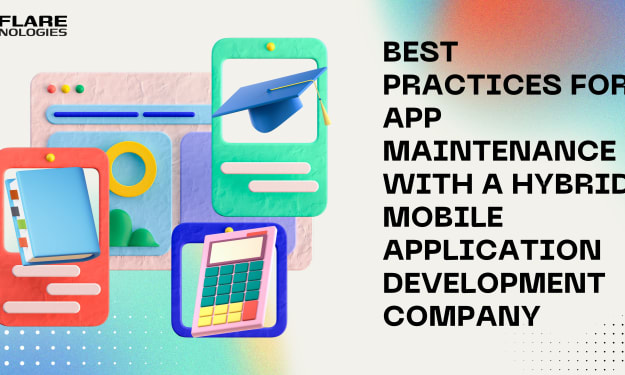Top 10 Considerations When Hiring an iOS Mobile App Development Company
READ BEFORE YOU HIRE!

Introduction
Managing a project with an iOS mobile app development company requires effective coordination and communication to ensure successful outcomes. This journal explores essential strategies and considerations to effectively manage your project with an iOS mobile app development company, ensuring clarity, efficiency, and alignment with your business goals.
Understanding Project Scope and Requirements
Begin by defining clear project scope and requirements in collaboration with the iOS mobile app development company. This involves outlining specific features, functionalities, target audience, and timeline expectations. Clear communication at this stage lays the foundation for a successful project outcome and minimizes misunderstandings.
Choosing the Right iOS Development Partner
Selecting the right iOS mobile app development company is crucial. Evaluate their experience, expertise in iOS app development, and track record with similar projects. Ensure they align with your project goals, offer transparent communication channels, and demonstrate a proactive approach to project management.
Establishing Clear Communication Channels
Establishing robust communication channels is essential for effective project management. Define communication protocols, including regular meetings, status updates, and feedback sessions. Utilize project management tools like Slack, Trello, or Asana to facilitate seamless communication and collaboration.
Setting Realistic Milestones and Timelines
Break down the project into manageable milestones with clear timelines. Define key deliverables and deadlines to track progress effectively. Collaborate with the iOS development team to prioritize tasks, allocate resources efficiently, and maintain momentum throughout the project lifecycle.
Implementing Agile Project Management Methodologies
Adopt agile project management methodologies to enhance flexibility and responsiveness. Agile frameworks like Scrum or Kanban enable iterative development, continuous feedback loops, and adaptive planning. This approach facilitates quick adjustments to changing requirements and ensures alignment with evolving business needs.
Monitoring Progress and Performance
Regularly monitor project progress and performance metrics to gauge development milestones, budget adherence, and quality standards. Conduct regular sprint reviews, demos, and retrospectives with the iOS development team to assess achievements, address challenges promptly, and optimize project efficiency.
Ensuring Quality Assurance and Testing
Integrate robust quality assurance (QA) and testing processes throughout the development cycle. Collaborate with the iOS development company to conduct comprehensive testing, including functional testing, usability testing, and performance testing. Prioritize bug identification and resolution to deliver a polished and reliable app.
Managing Budget and Resource Allocation
Effectively manage project budget and resource allocation to optimize costs without compromising quality. Define budgetary constraints early in the project and monitor expenditures closely. Work with the iOS development company to prioritize features based on business value and scalability.
Facilitating User Feedback and Iterative Refinement
Encourage user feedback and incorporate iterative refinement cycles into the development process. Leverage beta testing, user acceptance testing (UAT), and focus groups to gather actionable insights. Collaborate with the iOS development team to implement user-driven improvements and enhance overall app usability.
Ensuring Post-launch Support and Maintenance
Plan for post-launch support and maintenance to ensure ongoing app performance and user satisfaction. Define a support strategy with the iOS development company, including bug fixes, updates, and feature enhancements. Establish service level agreements (SLAs) to address critical issues promptly and maintain app relevance in the market.
Risk Management Strategies: Discuss proactive approaches to identifying and mitigating risks throughout the project lifecycle. Highlight the importance of risk assessment, contingency planning, and risk response strategies to ensure project success.
Collaborative Stakeholder Engagement: Emphasize the role of stakeholder engagement in project success. Describe strategies for fostering collaboration between stakeholders, including regular updates, feedback sessions, and stakeholder workshops.
Adapting to Change: Explain the importance of flexibility and adaptability in project management. Discuss techniques for managing change requests, incorporating new requirements, and responding to evolving market conditions while maintaining project momentum.
Performance Monitoring and Reporting: Provide insights into monitoring project performance and generating comprehensive progress reports. Discuss the use of project management tools and metrics to track key performance indicators (KPIs) and ensure alignment with project goals.
Continuous Learning and Improvement: Highlight the value of continuous learning and improvement in project management practices. Discuss the role of project retrospectives, lessons learned sessions, and knowledge sharing among team members to enhance project outcomes.
Effective Resource Management: Expand on strategies for optimizing resource allocation and utilization. Discuss techniques for balancing workload, managing team dynamics, and leveraging external resources effectively to support project objectives.
Ethical Considerations and Compliance: Touch upon ethical considerations and compliance requirements relevant to app development projects. Discuss the importance of data privacy, security standards, and regulatory compliance in ensuring app integrity and user trust.
Technology and Innovation: Explore the role of technology and innovation in driving project success. Highlight trends in iOS app development, emerging technologies (such as AI and IoT), and their potential impact on future project strategies.
Cultural and Diversity Considerations: Address the importance of cultural sensitivity and diversity in project teams. Discuss strategies for fostering inclusivity, cross-cultural communication, and leveraging diverse perspectives to drive innovation and creativity.
Sustainability and Environmental Impact: Touch upon sustainability practices and their relevance to app development projects. Discuss initiatives for minimizing environmental impact, promoting sustainable development practices, and contributing to corporate social responsibility (CSR) efforts.
Conclusion
Managing your project with an iOS mobile app development company involves strategic planning, effective communication, and meticulous execution. By focusing on clear requirements, agile methodologies, quality assurance, and ongoing collaboration, you can navigate the complexities of app development successfully. Partnering with a trusted iOS development company ensures alignment with your business objectives and delivers a high-quality app that meets user expectations.
About the Creator
Enjoyed the story? Support the Creator.
Subscribe for free to receive all their stories in your feed. You could also pledge your support or give them a one-off tip, letting them know you appreciate their work.





Comments
There are no comments for this story
Be the first to respond and start the conversation.